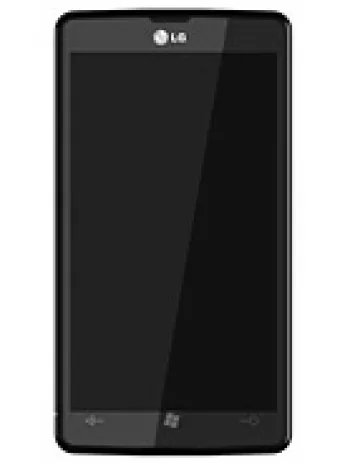
Introduction to LG KF900 Prada
The LG KF900 Prada, released in December 2008, is a classic example of early collaborations between technology giants and fashion brands. This handset, a partnership between LG and the famous fashion label Prada, signifies the intersection of style and advanced mobile technology, which catered to a niche market of users who desired both functionality and trendiness in their mobile devices.
Design and Build
One of the most striking features of the LG KF900 Prada is its sleek and stylish design attributed to the influences of Prada. Measuring 104.5 x 54 x 16.8 mm and weighing 130 g, the device projects a compact and elegant look that was quite appealing in the late 2000s. A notable design feature is its slide-out QWERTY keyboard, which not only provided a real tactile typing experience but also maintained the device's minimalistic exterior design.
Display
The KF900 Prada boasted a 3.0-inch TFT touchscreen display with 256K colors, which was quite impressive at the time. The resolution of 240 x 400 pixels offered a decent viewing experience, with a pixel density of approximately 155 ppi. Although today's smartphones have far surpassed this in display technology, the KF900 Prada was well-received for the clarity and color vibrancy of its screen during its peak time.
Camera Capabilities
The device was equipped with a 5 MP rear camera, featuring Schneider-Kreuznach optics and an LED flash, which was seen as a premium photography feature back then. It allowed for autofocus and recorded videos at 480p@30fps. While the quality of the camera would be considered basic by contemporary standards, it was more than adequate for everyday photography in 2008. The lack of a front-facing camera was a drawback, as video calls were becoming more popular around that time.
Network and Connectivity
The KF900 Prada supported both GSM and HSPA technologies, with 2G bands ranging across GSM 850, 900, 1800, and 1900, and HSDPA for 3G at 900/2100. The device's network speed was reasonable, offering up to 7.2 Mbps download speeds. In terms of connectivity, it included Wi-Fi 802.11 b/g, Bluetooth 2.1 with A2DP, stereo FM radio with RDS, and USB 2.0 support, which was fairly competent for devices of its time.
Internal Specifications
This feature phone operated on a simplistic proprietary OS and featured an internal storage of 60 MB, expandable via a dedicated microSDHC slot. The phone supported up to 1000 phonebook entries and provided photocall capabilities. It could store up to 30 dialed, 30 received, and 30 missed call records, illustrating its practical focus on essential mobile functionalities over high-capacity storage.
Messaging and Internet
The LG KF900 Prada supported a range of messaging services, including SMS, MMS, Email, and IM, alongside its WAP 2.0/xHTML and HTML browser for internet connectivity. Although the browsing capabilities seem quite basic now, they gave users access to crucial web functions at that time.
Battery Life
Powered by a removable Li-Ion 950 mAh battery, the Prada phone offered a stand-by time of up to 400 hours and a talk time of about 3 hours. This battery life was pretty standard, catering to users who primarily engaged in calls and text messaging.
Sound and Audio
For sound, the handset incorporated a loudspeaker but did not feature a 3.5mm headphone jack, which was a significant limitation for users wishing to use standard headphones. Nevertheless, the device's voice, noise, and ring speaker tests displayed adequate performance levels, with respective decibel levels of 77 dB, 75 dB, and 82 dB.
Additional Features
Additional functionalities included an accelerometer sensor, several pre-installed games, and Java MIDP 2.0 support, contributing to its multimedia ability. However, the lack of GPS positioning possibly detracted from its navigational utility for users who relied on geo-location services.
Market Reception and Legacy
The LG KF900 Prada retailed at approximately 140 EUR, aligning with the market pricing for feature-rich phones with designer branding. Although it has been discontinued for nearly a decade and a half, its legacy is carried on through its influence on the evolution of mobile phone aesthetics and the burgeoning luxury smartphone market.
Conclusion
The LG KF900 Prada stands as a testament to the successful merging of high-end fashion with telecommunication technology. While its specifications appear modest compared to today's smartphones, its innovative design and feature set, such as the QWERTY keyboard and designer aesthetics, provided users with a device that was both fashionable and functional in its heyday. The LG KF900 Prada remains a noteworthy chapter in the history of mobile devices.
Key Features of LG KF900 Prada
- 3G Network Technology: GSM / HSPA for faster connectivity.
- Compact Dimensions: 104.5 x 54 x 16.8 mm, lightweight at 130 g.
- QWERTY Physical Keyboard for easier texting and emailing.
- 3.0-inch TFT Display with 256K colors for vibrant visuals.
- 5 MP Main Camera with Schneider-Kreuznach optics and LED flash for high-quality photos.
- Wi-Fi 802.11 b/g for wireless internet connectivity.
- Bluetooth 2.1 with A2DP support for wireless audio streaming.
- Stereo FM Radio with RDS for music and live broadcasts.
- Accelerometer Sensor for enhanced user experience.
- Removable Battery offering up to 400 hours of standby time.
LG KF900 Prada Drawbacks
- Limited internal storage of 60MB, which may require frequent use of microSDHC for additional space.
- No 3.5mm headphone jack, limiting headphone options.
- Lack of GPS positioning capabilities.
- Low resolution display with 240 x 400 pixels at approximately 155 ppi density.
- No front-facing selfie camera.
- Older Bluetooth version 2.1, which lacks the speed and efficiency of newer versions.
- Short battery life with a talk time of up to 3 hours only.
- The device is discontinued, making it difficult to find repairs and replacements.
- Limited screen-to-body ratio (~45.4%) compared to modern smartphones.

















View Also
More Phones
All Rights Reserved +14267 Phones © Mobilawy 2025

























